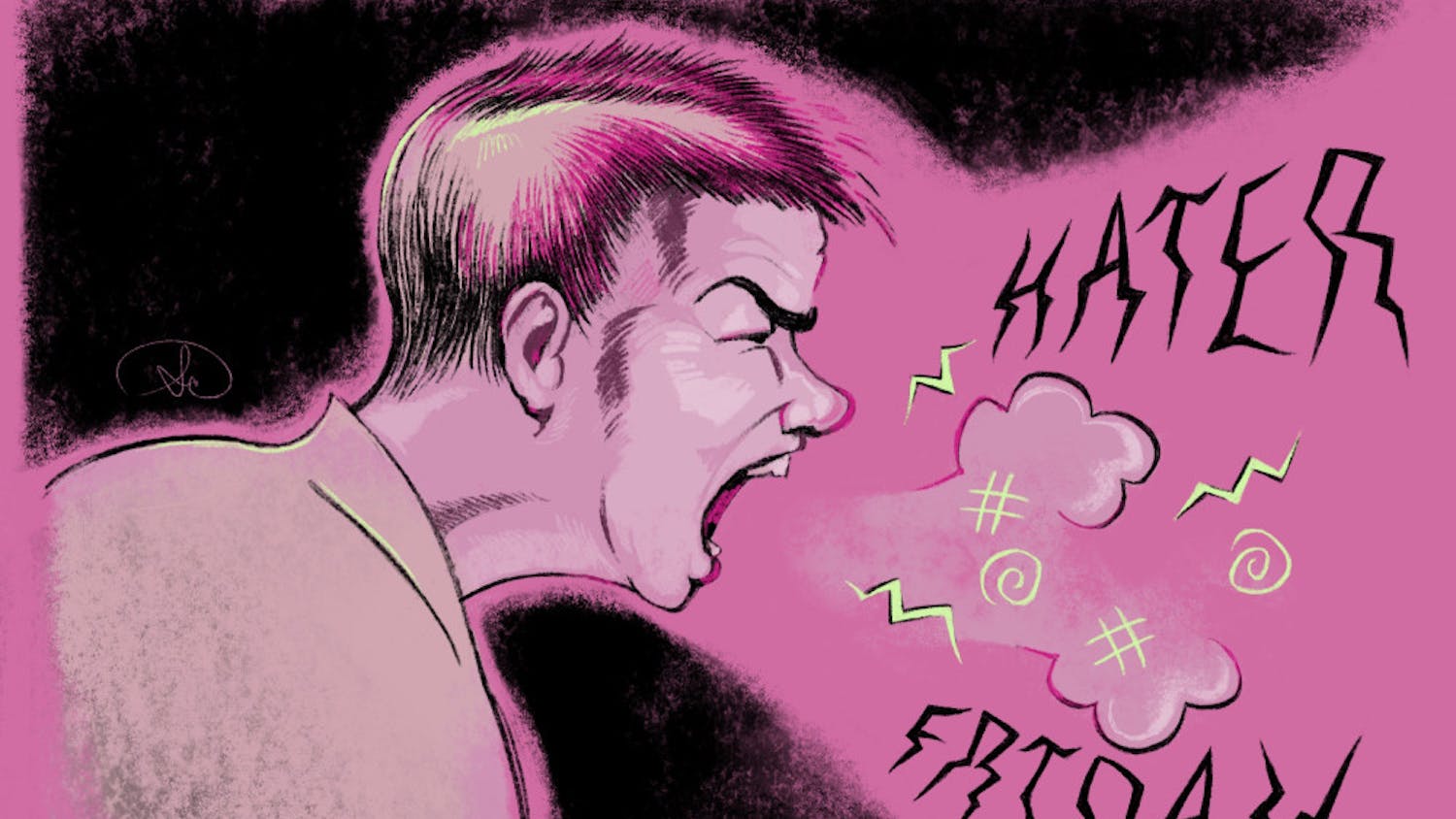It is a universally acknowledged truth that in the time around Valentine’s Day, everyone, whether single, in a couple or exploring the “it’s complicated” tag, will inadvertently revert to a romcom to fill their evenings. Little do they know that the male lead all (okay, fine, most) viewers are collectively drooling over was invented by a writer in the 18th century.
We all know him — he’s tall, dark and handsome. He has an unbearable attitude, all the women want him and he is undeniably aloof when it comes to everyone around him but you. And you are the one he will choose. He could have any of the prettiest girls, but he is going to pick you. Sound familiar? That is pretty much the fantasy that mass media feeds every girl the minute she turns on the TV. Mr. Fitzwilliam Darcy, from Jane Austen’s novel Pride and Prejudice, is probably one the most famous originators of this trope. Every leading man since has been a copycat impression of the original.
Some characters are actual parodies, such as Mr. Mark Darcy in Bridget Jones’s Diary. In fact, the whole of that movie is a modern rewrite of Austen's original. Yet so many other shows and movies have adopted this trope, going beyond just adapting Austen.
In Pride and Prejudice, Austen detailed the great desire to be chosen by someone everyone wants. But when did that become what it is today? When did girls start settling for being belittled, mistreated, friends-with-benefitted and told that “I am just not sure if I want to be in a relationship right now?” The desire to be chosen has crossed the line into having no boundaries. That is how people misinterpret and romanticize this trope of the often dark and self-centered character. What happened to the chivalry that Mr. Darcy displays when he rescues Elizabeth Bennet and her family from various perils? What about the way in which he stands up to his family’s most important relative? In the modern world, while pursuing the chance to be chosen, I have seen girls do anything just to be with “the one.” Let us take someone who is incapable of treating others well and “fix him.”
Yet, Austen’s Mr. Darcy had one vital, overlooked aspect of his character development. Nobody fixes him. Elizabeth does not force him to become a better person. She never tries to convince him to treat her better or to get his act together. Instead, she tells him that she will never be with him because of how he acts and how hubristic and proud he is. This is what makes Mr. Darcy decide that he must become a better person, and he proves time and time again to Elizabeth that he is worth being with. Pride and Prejudice is a lengthy story about what it truly means to be chosen by someone. One does not have to convince someone that they are worth being loved, but rather the other person decides to be the best version they can be in order to be with them. That personal growth is at the very core of this trope and it is the main lesson I wish was learned.
Regardless of your gender, it is not on you to “fix” someone or convince them that you should be chosen. Love is supposed to be given freely. Proper treatment should be received without begging. What is the point of being chosen by someone when it involves groveling and compromising for them to stay? Everyone wants to feel chosen, but sometimes not all costs are worth it. Mass media often focuses on the character that everyone wants to be with and all the women in the neighborhood would chase after. The mistake is that it often involves stepping over your boundaries in order to be with them. The right person changes, because wanting to be with you means more than their pride. If Mr. Darcy, who owns Pemberley and has an income of £10,000 a year, can change for Bennet, then some college student can surely change for you.
Never settle for less. It’s better to watch a romcom by yourself than with the wrong person.
Love,
Your local Psychology & English double major
Lusine Boyadzhyan is a sophomore in the College of Arts and Sciences. She can be reached at lboyadzhyan@cornellsun.com.











